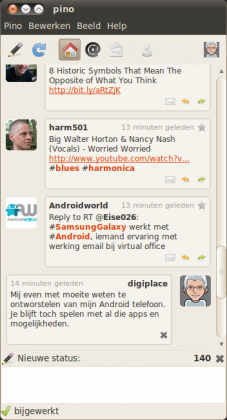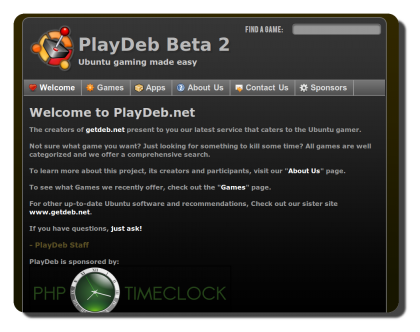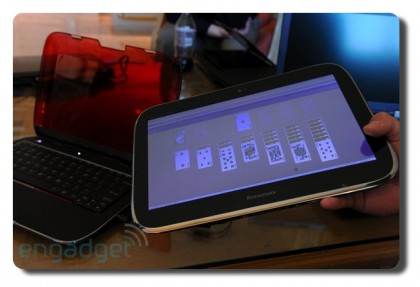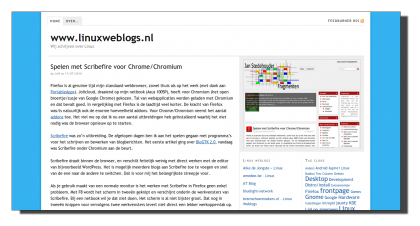De standaard Twitter cliënt onder Ubuntu 10.4 is Gwibber. Al snel kwam ik tot de conclusie dat Gwibber teveel performance issues kent. Op de website van Gwibber is overigens een verklaring en een oplossing te vinden.
Gwibber 2.30 uses Ubuntu’s DesktopCouch framework so that it can its message cache, accounts, settings, and other relevant information inside of a local CouchDB database. Although DesktopCouch offers a lot of compelling advantages, such as seamless synchronization, it has some performance limitations and is difficult to package.
Users who do not want to rely on CouchDB can instead use Gwibber’s SQLite backend. This alternate storage backend obviates the DesktopCouch dependency and also offers improved performance and stability. If you want to run Gwibber with SQLite, you can obtain it from the 230-sqlite-backend branch on Launchpad. I am currently working to integrate this alternate backend directly into the latest code in Gwibber trunk so that it will be easier to maintain it alongside the existing CouchDB backend.
Ik ben desondanks toch eens gaan kijken naar een alternatief. Uiteindelijk ben ik terecht gekomen bij Pino. Een prima alternatief. Het biedt welliswaar alleen ondersteuning voor Twitter en identi.ca en heeft een traditioneel 1 koloms weergave maar dat mag de pret niet drukken.
Pino is snel en integreert prima in Ubuntu desktop. Niet alleen qua vormgeving, maar ook door de samenwerking in de meldings-applet.


Installeren is eenvoudig: Open een terminal en voer de volgende commando’s in:
sudo add-apt-repository ppa:vala-team/ppa
sudo add-apt-repository ppa:troorl/pino
Daarna nog even een sudo apt-get update en een sudo apt-get install pino en de zaak draait.













